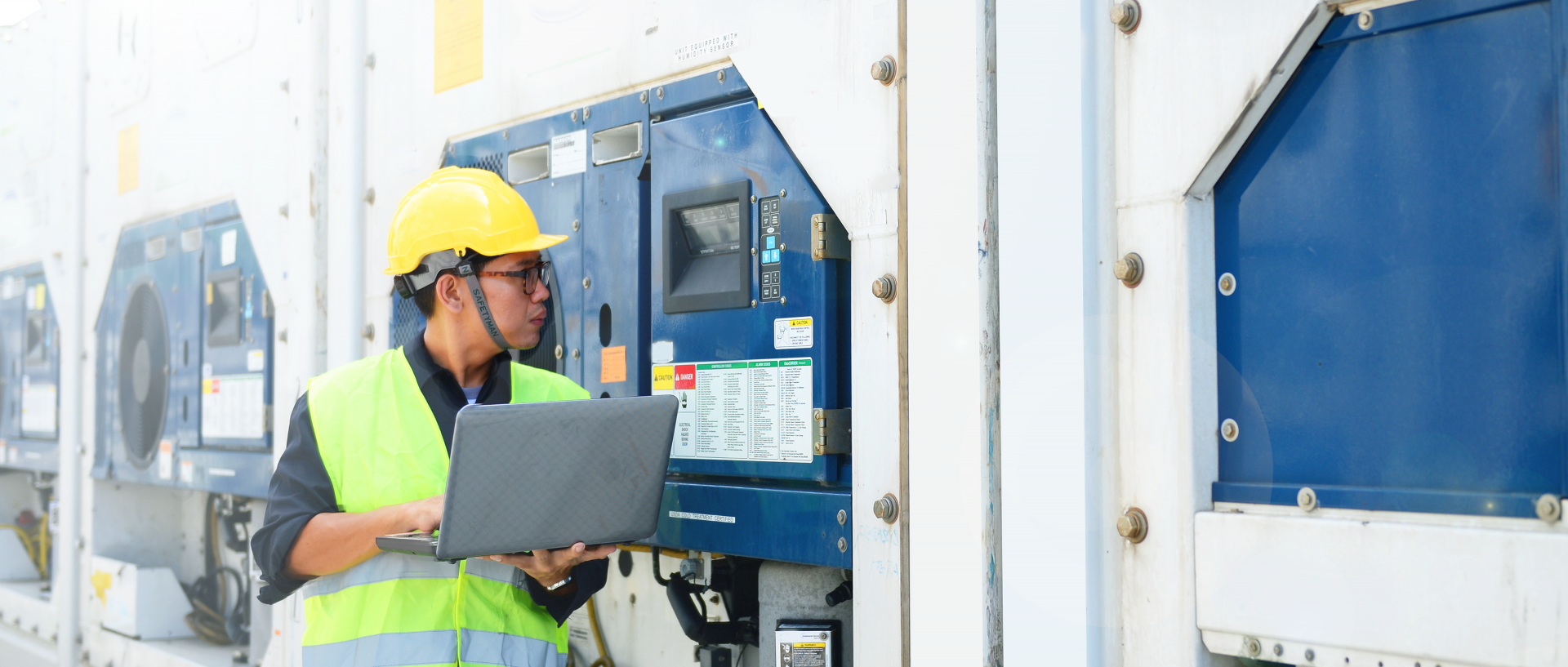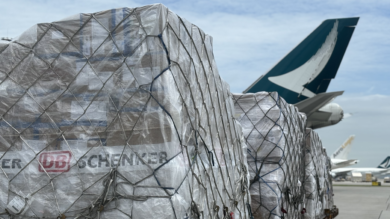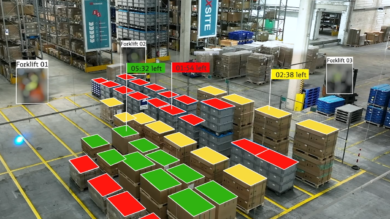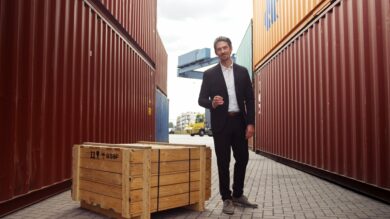Since the release of the first COVID-19 vaccine, refrigerated containers, or for short reefer, is THE hot topic in logistics. Some vaccines require a deep-frozen transportation between -20 and -70°C. This makes reefer containers crucial in the supply chain. But even before this latest spotlight, the reefer business has been a growing market within logistics due to an increasing global demand for fresh and healthy produce as well as healthcare.
Claus Aagaard is an expert in the field of refrigerated containers in logistics, with more than 20 years of experience. He has worked in global management roles at DB Schenker, Panalpina and DSV. Since November 2020 he is heading the new reefer department at DB Schenker as Vice President Global Reefer Logistics.
Logistics Matters interviewed Claus Aagaard on the importance of reefer containers when it comes to the transportation of the COVID-19 vaccine, the current status and an outlook on the future of the reefer business.
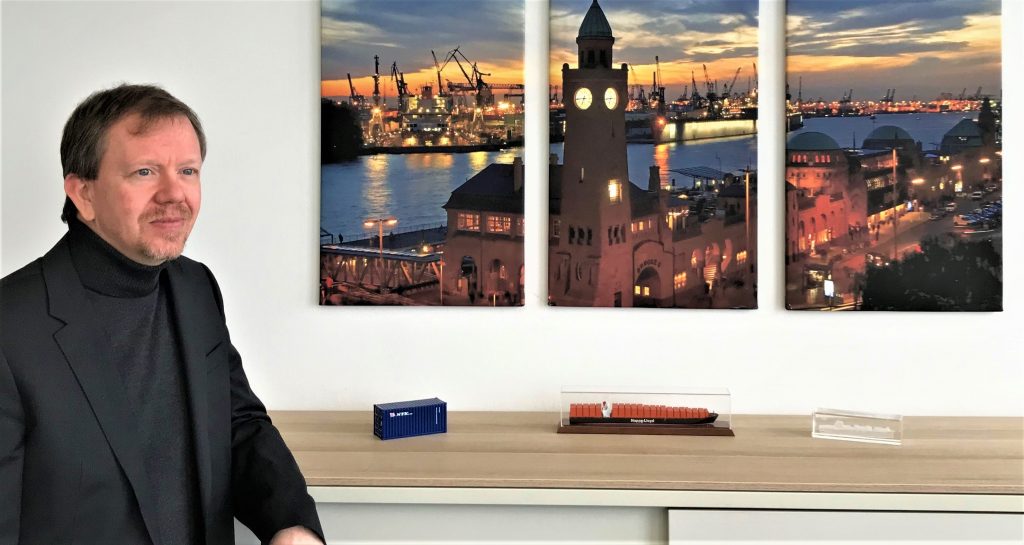
Logistics Matters: All eyes are currently on the COVID-19 vaccine and with that the transportation via reefer containers. How do you evaluate the current situation?
Claus Aagaard: “It is extremely exciting to see cold chain logistics brought to the forefront due to the COVID-19 vaccine. We at DB Schenker are obviously paying close attention to the vaccine development. However, until we see an increase in the production capacity then the urgent nature of the demand means that our colleagues in Air Freight will be the ones directly involved.
It is a matter of whether the manufacturers are able to turn out large batches of their products in advance of the demand – planned re-stocking. That decides the mode of transport.
“It is an exciting time for the reefer industry. Developments in the logistics industry are driven by customer demand, and cold chain transport has already proven to be essential in today’s society.”
When it comes to the vaccine that requires -70°C temperature conditions, transport via ocean freight is difficult. The coldest that even the most advanced containers can maintain is -60°C. This requires a combination of a refrigerated container and the use of dry ice. For a transit time of more than 3-4 days this is very complicated.
Since the newest approved vaccines have less need for cooling, then there would be no technical reason that these could not be transported via ocean freight. For the above-mentioned reasons, however, we do not foresee that this will happen in the next 1-2 years.”
Logistics Matters: DB Schenker has already transported all kinds of goods with reefer containers on behalf of its customers. Now DB Schenker has launched a new, dedicated Reefer department, which you are heading. Why is that?
Claus Aagaard: “As part of our overall strategy, we are always looking for growth opportunities. And you are right: we have been using refrigerated containers for years already. But this has only had a local focus in some branches or countries. In these locations, we are lucky to have very knowledgeable colleagues providing great service to our customers. In general, however, we are under-represented in this segment of our Ocean Freight business.
Reefers make up 6-7 percent of the global container cargo but in 2020, accounted for less than 2 percent of DB Schenker’s ocean freight volume.
A dedicated reefer department allows us to complete the service offering across all geographies for our customers in all verticals. This includes batteries for electric cars (Automotive), temperature sensitive chemicals (Industrial), food products (Consumer and Retail) or Healthcare.”
Logistics Matters: What will change for the customer?
Claus Aagaard: “DB Schenker will become a true one-stop option. We will cover all types of commodities that the customer would want to transport. Our dedicated network of experts will mean that there will always be someone regionally and locally that speaks the “language” of the customers involved in cold chain logistics.
It will also allow us to standardize the service offerings and processes while still maintaining a focus on the individual needs of each customer.”
Logistics Matters: How will the market around temperature-controlled transport and reefer containers develop?
Claus Aagaard: “With the ever-expanding population and the equally increasing interest in access to products produced in other parts of the world, the demand for temperature-controlled transport has seen a stable increase over the last decades. This has continued to grow regardless of economic downturns, such as the banking crisis of 2008 or the current COVID-19 pandemic.
“At the moment, we are faced with a shortage of both space and equipment leading to an overheating of the market and unprecedented high rates.”
This is not just a reefer-specific situation but is rather related to the overall ocean freight (dry) market. In our opinion, the peak has passed, and we expect things to calm down over the upcoming months. It is, however, not expected that the overall rate levels will return to the levels we saw in 2018 to 2019. Carriers have discovered that they can effectively control capacity to meet demand. They will continue to do so to avoid returning to a scenario where they end up in red numbers.
For the reefer department specifically, we predict a year where equipment will continue to be tight. Investments in new containers have not yet reached a level where they match the increased demand over the last years. The production capacity is already fully utilized for new investments. As a result, carriers will focus on the best possible utilization of containers, limiting the free time and preferring shorter transit time services (for example intra-European or intra-Asian). Customers with regular shipments and accurate forecasts are also more likely to be favored.
All in all, it is an exciting time for refrigerated containers in the logistics industry. Developments in the industry are driven by customer demand, and cold chain transport has already proven to be essential in today’s society. It will be extremely interesting to see how we can drive our reefer business further in the future!”


